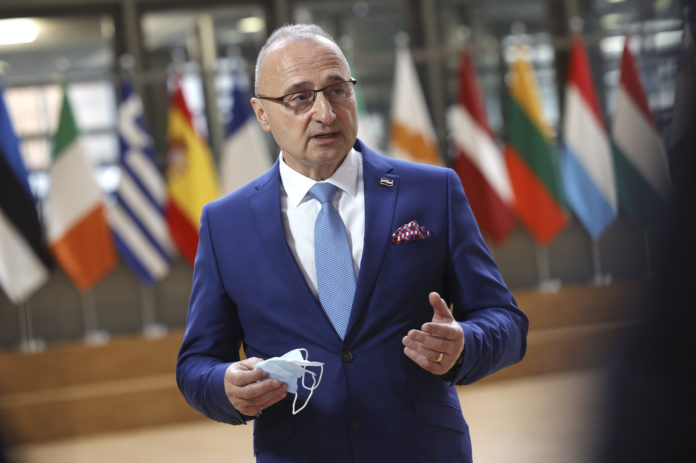Croatia: We Will Respond to Montenegro’s Resolution on Jasenovac

EPA-EFE
Croatia will respond to the passing of the resolution regarding genocide in Jasenovac within the Montenegrin Parliament, asserting that, as a member of the EU and NATO, it possesses all necessary mechanisms, stated Croatian Foreign Minister Gordan Grlić Radman today.
He remarked that Montenegro has presented two individuals in Brussels and has used them instrumentally in Podgorica, indicating that Croatia will take action.
– Croatia has communicated its stance to Montenegro, asserting that as a member of the EU and NATO, it has all available mechanisms. We are still discussing how our Prime Minister should proceed – Radman informed journalists in Zagreb.
He emphasized that maintaining good neighborly relations is a critical criterion for EU enlargement, noting that Montenegro’s actions are “contrary to its commitments” and are retracing steps into the past without justification.
Grlić Radman expressed that the Montenegrin Parliament should not be the entity evaluating events from 80 years ago, as this responsibility lies with independent bodies and historians.
“We recall the image of Montenegrin reservists and the aggression in Dubrovnik,” stated the Croatian minister, asserting that Montenegro must confront its “own history,” adding that “responding to war criminals is essential for proper neighborly relations.”
The Montenegrin Parliament passed a resolution on June 28 concerning genocide in the camps at Jasenovac, Dachau, and Mauthausen.
Subsequently, the Croatian Ministry of Foreign and European Affairs noted that the resolution’s adoption could hinder Montenegro’s EU integration.
On June 29, the EU confirmed at the Intergovernmental Conference that Montenegro had fulfilled transitional measures across key chapters related to judicial and internal affairs, granting it an opportunity to expedite its integration process.
Grlić Radman also stated that Croatia’s conclusions included “compensation for detainees, accountability for missing persons, and the protection of the Croatian national minority in Montenegro.”


